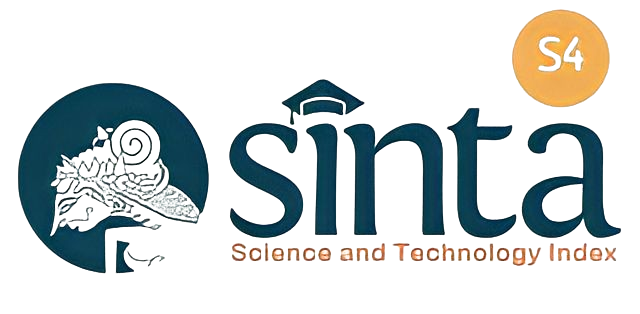Realizing the SDGs Through the Development of Islamic Finance: Its Impact on Environmental Quality, Economic Growth, and Population in All Provinces of Indonesia
DOI:
https://doi.org/10.14421/jmes.2024.032-02Keywords:
Islamic Financial Development, Environmental Quality, Economic Growth, Population, SDGsAbstract
Indonesia faces significant challenges in achieving sustainable development, amidst increasing air pollution, social inequality, and the need to improve public welfare. In efforts to optimize Islamic Financial Development (IFD) as an instrument to support the Sustainable Development Goals (SDGs), this study aims to explore its impact on Environmental Quality (EQ), Economic Growth (GDP), and Population (POP) across all provinces in Indonesia. Using the Panel Vector Error Correction Model (PVECM), the study finds that IFD has a negative effect on air quality (EQ), although this impact is not significant in both the short and long term. On the other hand, economic growth (GDP) shows a significant negative impact on environmental quality, with an increase in GDP contributing to a reduction in air pollution. Meanwhile, population (POP) has a significant negative impact on environmental quality, meaning that although an increase in population may worsen air quality, proper environmental policies can mitigate its negative effects. The findings of this study suggest that the integration of the Islamic finance sector with effective environmental policies is crucial for accelerating the achievement of SDGs in Indonesia, with attention to the specific characteristics of different regions.
References
Abduh, M., Buys, W. A., & Aziz, S. A. (2022). Exploring the relationship between Islamic financial development, energy consumption, and environmental quality. International Journal of Energy Economics and Policy, 12(2), 426–430.
Akaike, H. (1974). A new look at the statistical model identification. IEEE Transactions on Automatic Control, 19(6), 716–723.
Al-Silefanee, R. R., Mamkhezri, J., Khezri, M., Karimi, M. S., & Khan, Y. A. (2022). Effect of Islamic Financial Development on Carbon Emissions: A Spatial Econometric Analysis. Frontiers in Environmental Science, 10(April), 1–13. https://doi.org/10.3389/fenvs.2022.850273
Alam, A., Azam, M., Abdullah, A. Bin, Malik, I. A., Khan, A., Hamzah, T. A. A. T., Faridullah, Khan, M. M., Zahoor, H., & Zaman, K. (2015). Environmental quality indicators and financial development in Malaysia: unity in diversity. Environmental Science and Pollution Research, 22(11), 8392–8404. https://doi.org/10.1007/s11356-014-3982-5
Allen, C., Metternicht, G., & Wiedmann, T. (2018). Initial progress in implementing the Sustainable Development Goals (SDGs): a review of evidence from countries. Sustainability Science, 13(5), 1453–1467. https://doi.org/10.1007/s11625-018-0572-3
Aminudin, M. Z., & Hadiningrum, L. P. (2019). Pengelolaan ZIS Dalam Upaya Meningkatkan Kesejahteraan Masyarakat Dan Penanggulangan Kemiskinan (Studi Deskriftif dan Preskriptif di BAZNAS Kabupaten/Kota di Eks-Karesidenan Surakarta). ZISWAF : Jurnal Zakat Dan Wakaf, 6(1), 80. https://doi.org/10.21043/ziswaf.v6i1.5612
Badan Pusat Statistik. (2024). Berita Resmi Statistik No. 47/07/Th. XXVI tentang Profil Kemiskinan di Indonesia Per Maret 2023. 50, 1–16. https://www.bps.go.id/pressrelease/2023/07/17/2016/profil-kemiskinan-di-indonesia-maret-2023.html#:~:text=Jumlah penduduk miskin pada Maret,yang sebesar 7%2C53 persen.
Barrera-Heredia, A. D., Zafra-Mejía, C. A., Cañas Arboleda, A., Fernández Sánchez, M. J., López-Kleine, L., & Rojas Moreno, A. (2024). Trends in the Use of Air Quality Indexes in Asthma Studies. Atmosphere, 15(7), 1–19. https://doi.org/10.3390/atmos15070847
Beisheim, M., & Simon, N. (2018). Multistakeholder partnerships for the SDG s: Actors’ views on un metagovernance. Global Governance, 24(4), 497–515. https://doi.org/10.1163/19426720-02404003
Borck, R., & Schrauth, P. (2021). Population density and urban air quality. Regional Science and Urban Economics, 86, 103596.
Candra Ningluthfi, A., & Arif Nurohman, Y. (2024). Peran Islamic Green Banking terhadap Sustainable Development Goals di Indonesia. Al-Kharaj: Jurnal Ekonomi, Keuangan & Bisnis Syariah, 6(5), 3689–3703. https://doi.org/10.47467/alkharaj.v6i5.1182
Charfeddine, L., Al-Malk, A. Y., & Al Korbi, K. (2018). Is it possible to improve environmental quality without reducing economic growth: Evidence from the Qatar economy. Renewable and Sustainable Energy Reviews, 82, 25–39.
Cole, M. A., & Elliott, R. J. R. (2003). Determining the trade–environment composition effect: the role of capital, labor and environmental regulations. Journal of Environmental Economics and Management, 46(3), 363–383.
Dimnwobi, S. K., Ekesiobi, C., Madichie, C. V, & Asongu, S. A. (2021). Population dynamics and environmental quality in Africa. Science of the Total Environment, 797, 149172.
Ekonomi, F., Bisnis, D. A. N., Negeri, U. I., & Lampung, R. I. (n.d.). ANALISIS IMPLEMENTASI GREEN BANKING PEMBIAYAAN ( Studi Komparatif Bank Syariah Indonesia dan Bank Rakyat Indonesia Periode Tahun 2021-2022 ).
Engle, R. F., & Granger, C. W. J. (1987). Co-integration and error correction: representation, estimation, and testing. Econometrica: Journal of the Econometric Society, 251–276.
Febriana, S., Diartho, H. C., & Istiyani, N. (2019). Hubungan pembangunan ekonomi terhadap kualitas lingkungan hidup di provinsi jawa timur. Jurnal Dinamika Ekonomi Pembangunan, 2(2), 58–70.
Fitriansyah, R., & Huda, N. (2023). Produksi Menurut Muhammad Abdul Mannan Dan Relevansinya Terhadap Sustainable Development Goals (SDGS). Jurnal Ilmiah Ekonomi Islam, 9(2), 1958. https://doi.org/10.29040/jiei.v9i2.8925
Goma, E. I. (2021). Dampak Covid-19 Terhadap Isu Kependudukan di Indonesia. Geodika: Jurnal Kajian Ilmu Dan Pendidikan Geografi, 5(1), 33–42. https://doi.org/10.29408/geodika.v5i1.3180
Grossman, G. M., & Krueger, A. B. (1995). Economic growth and the environment. The Quarterly Journal of Economics, 110(2), 353–377.
Hansson, S., Arfvidsson, H., & Simon, D. (2019). Governance for sustainable urban development: the double function of SDG indicators. Area Development and Policy, 4(3), 217–235. https://doi.org/10.1080/23792949.2019.1585192
Heger, M., Zens, G., Bangalore, M., & Heger, M. P. (2018). Does the Environment Matter for Poverty Reduction? The Role of Soil Fertility and Vegetation Vigor in Poverty Reduction. Does the Environment Matter for Poverty Reduction? The Role of Soil Fertility and Vegetation Vigor in Poverty Reduction, August. https://doi.org/10.1596/1813-9450-8537
Humaida, N., Aula, M., Nida, N. H., Islam, U., & Antasari, N. (2020). Pembangunan berkelanjutan berwawasan lingkungan dalam perspektif islam. 18(1), 131–154. https://doi.org/10.18592/khazanah.v18i1.3483
IIN, I. (2023). Pengaruh Penerbitan Green Sukuk Terhadap Realisasi Anggaran Pembiayaan Infrastruktur Hijau Dalam Perspektif Islam.
Iskandar, A., Possumah, B. T., & Aqbar, K. (2020). Islamic financial development, economic growth and CO2 emissions in Indonesia. Journal of Islamic Monetary Economics and Finance, 6(2), 353–372.
Johansen, S. (1991). Estimation and hypothesis testing of cointegration vectors in Gaussian vector autoregressive models. Econometrica: Journal of the Econometric Society, 1551–1580.
Khan, I., Hou, F., & Le, H. P. (2021). The impact of natural resources, energy consumption, and population growth on environmental quality: Fresh evidence from the United States of America. Science of the Total Environment, 754, 142222. https://doi.org/10.1016/j.scitotenv.2020.142222
Malthus, T. (1798). An essay on the principle of population. Printed for J. Johnson. St. Paul’s Church-Yard, London, 1–126.
Malthus, T. R., & Winch, D. (1992). Malthus:’An Essay on the Principle of Population’. Cambridge university press.
Maulidiyah, D. R., & Auwalin, I. (2021). Pengaruh Pembiayaan Perbankan Syariah Terhadap Kualitas Lingkungan Hidup Tingkat Provinsi Di Indonesia. Jurnal Ekonomi Syariah Teori Dan Terapan, 8(4), 439. https://doi.org/10.20473/vol8iss20214pp439-450
Muhmad, S. N., Muhamad, R., & Sulong, F. (2021). Sustainable Development Goals and Islamic Finance: An Integrated Approach for Islamic Financial Institutions. Indonesian Journal of Sustainability Accounting and Management, 5(1). https://doi.org/10.28992/ijsam.v5i1.286
Mustofa, I. (2021). NALAR FILOSOFIS SUSTAINABLE DEVELOPMENT GOALS ( SDGS ) DALAM TATA KELOLA FILANTROPI ISLAM BERBASIS MASJID DI SURABAYA Pendahuluan PerseriakatanzBangsa-Bangsa Educational , Scientific and Cultural Organization ( UNESCO ); Labour Organization ( ILO ) sebaga. Jurnal Maliyah Jurnal Hukum Bisnis Islam, 11(01), 129–156.
Omri, A., Daly, S., Rault, C., & Chaibi, A. (2015). Financial development, environmental quality, trade and economic growth: What causes what in MENA countries. Energy Economics, 48, 242–252. https://doi.org/10.1016/j.eneco.2015.01.008
Patel, Z., Greyling, S., Simon, D., Arfvidsson, H., Moodley, N., Primo, N., & Wright, C. (2017). Local responses to global sustainability agendas: learning from experimenting with the urban sustainable development goal in Cape Town. Sustainability Science, 12(5), 785–797. https://doi.org/10.1007/s11625-017-0500-y
Perry, B., Diprose, K., Taylor Buck, N., & Simon, D. (2021). Localizing the SDGs in England: Challenges and Value Propositions for Local Government. Frontiers in Sustainable Cities, 3(October), 1–16. https://doi.org/10.3389/frsc.2021.746337
Pokhrel, S. (2024). No TitleΕΛΕΝΗ. Αγαη, 15(1), 37–48.
Pratama, E. P. P. A., Choirunnisa, A., Septina, Z., & Setiyawati, M. E. (2022). Peran Lembaga Keuangan Syariah Dalam Pengentasan Kemiskinan Di Indonesia. Jurnal Kesehatan Tambusai, 3(4), 570–577.
Raja, N. A. R. A. B., Sharifah Zarina Syed Zakaria, Isa, Nasharudin Mat Isa, Nuriah Abd Majid, & Muhammad Rizal Razman. (2021). Supporting Sustainable Development Goals (SDGS): Embedding global citizenship education across Malaysian Primary Schools Curriculum. Eco. Env. & Cons., 27(1), 194–200.
Risanti, M. A., Alwyni, F. A., & Nadya, P. S. (2020). Peran Green Sukuk dalam Mewujudkan Pembangunan yang Berkelanjutan. Prosiding Konferensi Nasional Ekonomi Manajemen Dan Akuntansi (KNEMA), 1177, 1–13.
Rive, N., & Rübbelke, D. T. G. (2010). International environmental policy and poverty alleviation. Review of World Economics, 146(3), 515–543. https://doi.org/10.1007/s10290-010-0063-9
Santi, R., & Sasana, H. (2021). Analisis Pengaruh Pertumbuhan Ekonomi, Jumlah Penduduk, Foreign Direct Investment (FDI), Energy Use/Consumption dan Krisis Ekonomi Terhadap Kualitas Lingkungan Ditinjau Dari Tingkat Carbon Footprint di Asean 8. Diponegoro Journal of Economics, 10(2).
Santoso, I. R. (2020). Green sukuk and sustainable development goals. In Global Journal Al-Thaqafah (Vol. 10, Issue 1, pp. 18–26).
Schwarz, G. (1978). Estimating the dimension of a model. The Annals of Statistics, 461–464.
Shafik, N. (1994). Economic development and environmental quality: An econometric analysis. Oxford Economic Papers, 46, 757–773. https://doi.org/10.1093/oep/46.Supplement_1.757
Shafik, N., & Bandyopadhyay, S. (1992). Economic growth and environmental quality: time-series and cross-country evidence (Vol. 904). World Bank Publications.
Subarsono, S. (2017). Pemberdayaan Masyarakat: Teori dan Praktik. In Jurnal Ilmu Sosial dan Humaniora (Vol. 6, Issue 1).
Suhandi, A. (2023). Strategi Fundraising Dan Program Pemberdayaan Masyarakat Untuk Meningkatkan Ekonomi Mustahik Pada Lembaga Filantropi Baznas Kabupaten Kuningan. AB-JOIEC: Al-Bahjah Journal of Islamic Economics, 1(1), 44–55. https://doi.org/10.61553/abjoiec.v1i1.22
Surya, B., Muhibuddin, A., Suriani, S., Rasyidi, E. S., Baharuddin, B., Fitriyah, A. T., & Abubakar, H. (2021). Economic evaluation, use of renewable energy, and sustainable urban development mamminasata metropolitan, Indonesia. Sustainability (Switzerland), 13(3), 1–45. https://doi.org/10.3390/su13031165
Tok, E., Yesuf, A. J., & Mohamed, A. (2022). Sustainable development goals and Islamic social finance: From policy divide to policy coherence and convergence. Sustainability, 14(11), 6875.
Tretter, F., Simon, K.-H., Böse-O’Reilly, S., Goepel, E., & Soentgen, J. (2018). Umwelt und Gesundheit im Kontext der Sustainable Development Goals . GAIA - Ecological Perspectives for Science and Society, 27(3), 332–333. https://doi.org/10.14512/gaia.27.3.18
Trimulato, T., Syamsu, N., & Octaviany, M. (2021). Sustainable Development Goals (SDGs) Melalui Pembiayaan Produktif UMKM di Bank Syariah. Islamic Review: Jurnal Riset Dan Kajian Keislaman, 10(1), 19–38. https://doi.org/10.35878/islamicreview.v10i1.269
Usman, M., Jahanger, A., Makhdum, M. S. A., Balsalobre-Lorente, D., & Bashir, A. (2022). How do financial development, energy consumption, natural resources, and globalization affect Arctic countries’ economic growth and environmental quality? An advanced panel data simulation. Energy, 241, 122515.
Vira Prajna Cantika, Ulfi Sheila Pinasti, & Martini Dwi Pusparini. (2022). Pengaruh Literasi Keuangan Dan Supporting Environmental Protection Pada Generasi Z Terhadap Minat Investasi Green Sukuk Untuk Mewujudkan Indonesia Ramah Lingkungan. At-Thullab : Jurnal Mahasiswa Studi Islam, 4(2), 1138–1155. https://doi.org/10.20885/tullab.vol4.iss2.art9
Weber, H., & Sciubba, J. D. (2019). The effect of population growth on the environment: evidence from European regions. European Journal of Population, 35, 379–402.
Widarjono, A. (2018). Pengantar dan Aplikasinya Disertai Panduan Eviews. Buku Ekonometrika. Edisi, 5.
Yulianto, I., & Guratan Djermor, J. (2018). Jurnal bppk. Jurnal BPPK, 11(2), 12–34.











